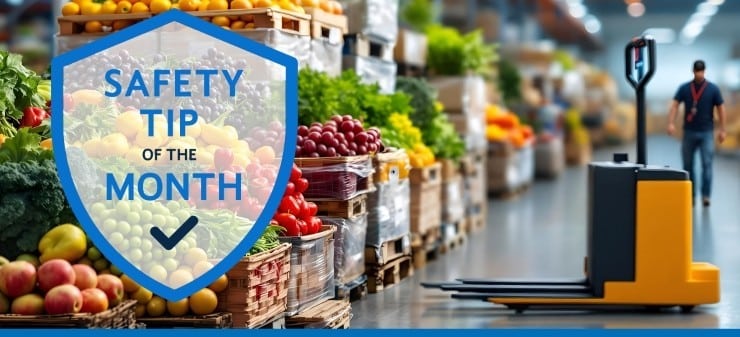Jury verdicts are skyrocketing. Controlling grocery store premises liability exposures is the best way to protect your customers while also reducing the risk of a jumbo-sized lawsuit. Recent cases show that every area, from the aisles and restrooms to the parking lot, deserve attention.
The Many Hazards Lurking on Grocery Store Premises
A grocery store may not seem like a dangerous place, but between the crowds of customers and the stacks of merchandise, there are numerous hazards. Consider the following scenarios:
- A customer climbs up to reach an item on the top shelf. The shelves collapse under the customer, causing injury.
- A customer enters the store on a snowy day. Melted snow has created a puddle near the entrance, and the customer slips and falls.
- A customer trips over a pallet of canned goods that had been left in the aisle.
- A large display of heavy items collapses onto a customer, causing severe injury.
- A customer stumbles over a wheel stop in a dark parking lot.
- Two customers are involved in a car collision at a confusing intersection in the parking lot.
When Are Grocery Stores Liable for Injuries?
You store won’t automatically be liable for injuries just because an incident occurred on your property. However, businesses can be held liable if a court determines that their negligence contributed to the injury.
Grocery stores, like all businesses, have a duty of care. You are inviting customers to shop at your store, so you are obligated to provide a reasonable safe environment for them. According to the Cornell Law School Legal Information Institute, “The duty owed by a property owner to an invitee is typically one of reasonable care to keep the premises in a reasonably safe condition and to warn of any known dangerous conditions that are not open and obvious.”
If you know of a hazard and do nothing to eliminate it or warn customers of it, you can be found liable for any injuries that occur as a result.
Recent Legal Cases
Several recent legal cases show how grocery stores can face allegations of negligence after an injury.
In two cases, the court sided with the defense.
- Two vehicles collided at an uncontrolled intersection in a grocery store parking lot. According to Lewis Brisbois, a woman suffered injuries and argued that the parking lot, not the other driver, was responsible because the intersection should have had a stop sign. The defense argued that the plaintiff was not an invitee because she had cut through the parking lot to avoid traffic and was not visiting the store, and this reduced the store’s duty. The defense also argued that there was no evidence that the property owner knew the intersection was problematic. The court ruled for the defense.
- A woman slipped and fell in the women’s restroom at a grocery store. According to Marshall Dennehey, the women claimed that she slipped on an unknown substance and sued the store. The defense argued there was no evidence that the store had received notice of the slippery condition. The court ruled for the defense, noting that it was unclear what actually caused the fall or what the substance was.
In another case, the court sided with the plaintiff.
- A woman was struck by a pallet jack that an employee was pulling while she was shopping at a Walmart. According to the Lawsuit Information Center, the woman sustained extensive spinal injuries and sued Walmart for failing to maintain a safe environment and for failing to properly train its employees. The jury found Walmart 100% liable and awarded the plaintiff $6,486,717.
These cases show that liability is not always a given. However, when stores are found liable, the costs can be significant. Either way, to avoid long-out legal battles and reputation harm, stores need to be proactive about keeping their premises safe AND documenting their efforts.
Is Your Grocery Store Managing Its Risks?
A 2025 report from Marathon Strategies found that large jury verdicts are increasing in size and number. In 2024, 135 lawsuits against corporations resulted in “nuclear verdicts” or $10 million or more, representing a 52% increase over 2023.
Managing grocery store premises liability risks is more important than ever. See our Grocery Store Premises Liability tip sheet for more information.


